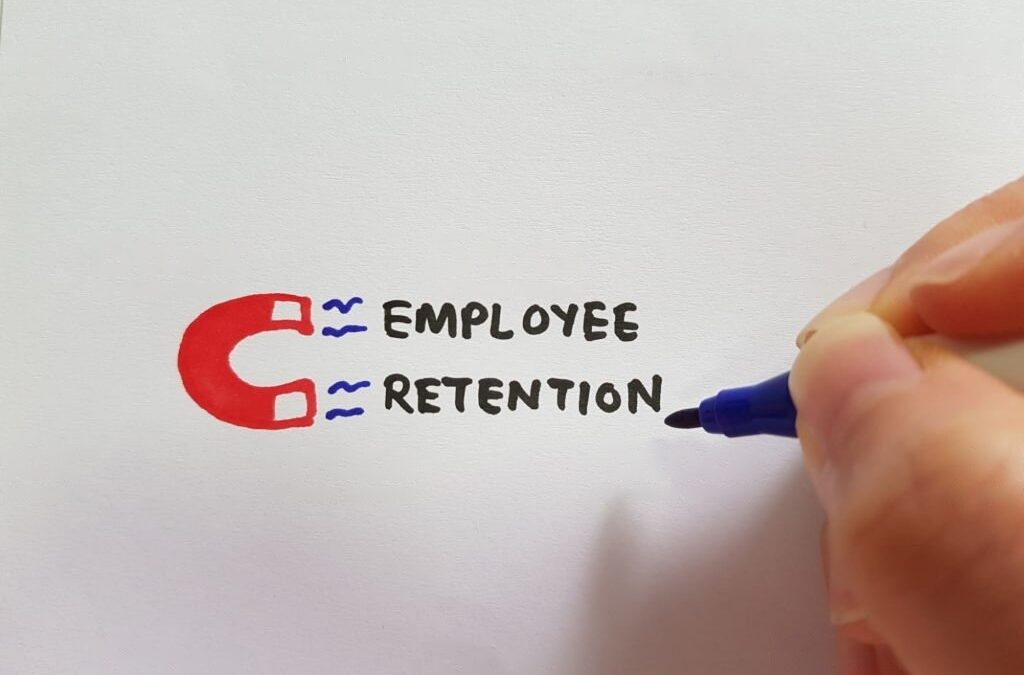As a business owner or manager, one of your primary concerns is likely retaining talented employees. Employee retention is crucial to the success of your company because it ensures stability and a consistent level of productivity. High employee turnover can lead to decreased morale, lost productivity, and increased costs associated with recruiting and training new employees. In this article, I will discuss effective employee retention strategies to help you retain your best employees.
The Importance of Employee Retention
Employee retention is critical for the long-term success of your business. High employee turnover rates can be detrimental to your organization, leading to lost productivity, decreased morale, and increased costs. When employees leave, they take their knowledge, skills, and experience with them, which can be difficult to replace. On the other hand, retaining employees can help you build a stable and productive workforce, reduce recruitment and training costs, and improve overall morale.
Common Reasons for Employee Turnover
Before discussing employee retention strategies, it’s essential to understand the common reasons why employees leave their jobs. Some of the most common reasons for employee turnover include:
Lack of Growth Opportunities
Employees want to feel like they are growing and developing in their careers. If they feel like they’ve hit a dead-end in their current position, they may look for opportunities elsewhere.
Poor Management
Employees who feel unsupported or undervalued by their managers are more likely to leave their jobs. Poor management can lead to decreased morale and a negative work environment.
Low Compensation
Employees want to feel like they are being compensated fairly for their work. If they feel like they are being underpaid, they may look for opportunities elsewhere.
Lack of Work-Life Balance
Employees want to feel like they have a healthy work-life balance. If they feel like they are constantly working and not able to enjoy their personal lives, they may look for opportunities elsewhere.
Benefits of Retaining Employees
Retaining employees has numerous benefits for your organization, including:
Increased Productivity
Retaining employees can lead to increased productivity. When employees feel like they are valued and supported, they are more likely to be productive and engaged in their work.
Cost Savings
Recruiting and training new employees can be costly, both in terms of time and money. Retaining employees can help reduce these costs, as you won’t have to spend as much time and money on recruitment and training.
Improved Morale
Retaining employees can lead to improved morale. When employees feel like they are valued and supported, they are more likely to be happy in their work and have a positive attitude.
Knowledge Retention
Retaining employees means that you retain their knowledge, skills, and experience. This can be valuable to your organization, as it ensures that you have experienced employees who can pass on their knowledge to new hires.
Understanding Your Employees’ Needs and Motivations
One of the most critical employee retention strategies is understanding your employees’ needs and motivations. Every employee is different, and what motivates one employee may not motivate another. As a manager or business owner, it’s important to take the time to get to know your employees and understand what drives them.
Conduct Employee Surveys
One way to understand your employees’ needs and motivations is to conduct employee surveys. Surveys can help you gather valuable feedback from your employees and identify areas where you can improve.
Hold Regular One-on-One Meetings
Another way to understand your employees’ needs and motivations is to hold regular one-on-one meetings. These meetings provide an opportunity for employees to discuss their goals, concerns, and feedback with their manager.
Provide Opportunities for Professional Development
Providing opportunities for professional development is another way to understand your employees’ needs and motivations. Employees want to feel like they are growing and developing in their careers, and providing opportunities for training and development can help meet this need.
Effective Communication and Feedback
Effective communication and feedback are essential to employee retention. Employees want to feel like they are being heard and that their feedback is valued. As a manager or business owner, it’s important to establish open lines of communication with your employees and provide regular feedback.
Establish Open Lines of Communication
Establishing open lines of communication is crucial to employee retention. Employees want to feel like they can approach their managers with concerns, feedback, and ideas. As a manager or business owner, it’s important to create a culture of open communication.
Provide Regular Feedback
Providing regular feedback is another essential employee retention strategy. Employees want to know how they are doing in their jobs and where they can improve. Providing regular feedback can help employees feel valued and supported.
Encourage Two-Way Communication
Encouraging two-way communication is another way to improve employee retention. Employees should feel like their managers are listening to their feedback and taking it into account. Encouraging two-way communication can help create a culture of collaboration and support.
Creating a Positive Work Environment
Creating a positive work environment is another key employee retention strategy. Employees want to work in an environment that is supportive, collaborative, and positive. As a manager or business owner, it’s important to create a culture that fosters positivity and support.
Encourage Collaboration
Encouraging collaboration is one way to create a positive work environment. Employees should feel like they are part of a team and that their contributions are valued. Encouraging collaboration can help create a sense of unity and support among employees.
Recognize Achievements
Recognizing achievements is another way to create a positive work environment. Employees want to feel like their hard work is being noticed and valued. Recognizing achievements can help boost morale and create a positive atmosphere.
Address Conflict Quickly
Addressing conflict quickly is another essential employee retention strategy. Conflict can lead to decreased morale and a negative work environment. As a manager or business owner, it’s important to address conflict quickly and effectively.
Providing Opportunities for Growth and Development
Providing opportunities for growth and development is another essential employee retention strategy. Employees want to feel like they are growing and developing in their careers. As a manager or business owner, it’s important to provide opportunities for training, development, and career advancement.
Provide Training and Development Programs
Providing training and development programs is one way to provide opportunities for growth and development. These programs can help employees acquire new skills and knowledge and improve their performance in their jobs.
Offer Career Advancement Opportunities
Offering career advancement opportunities is another way to provide opportunities for growth and development. Employees want to feel like they have a clear path for career advancement within your organization. Offering career advancement opportunities can help meet this need.
Provide Mentoring and Coaching
Providing mentoring and coaching is another way to provide opportunities for growth and development. Employees can benefit from the guidance and support of more experienced colleagues. Mentoring and coaching programs can help employees develop new skills and improve their performance in their jobs.
Offering Competitive Compensation and Benefits
Offering competitive compensation and benefits is another essential employee retention strategy. Employees want to feel like they are being compensated fairly for their work. As a manager or business owner, it’s important to offer competitive compensation and benefits packages to attract and retain top talent.
Conduct Salary Surveys
Conducting salary surveys is one way to ensure that you are offering competitive compensation packages. Salary surveys can help you understand the market rate for your employees’ positions and adjust your compensation packages accordingly.
Offer Comprehensive Benefits Packages
Offering comprehensive benefits packages is another way to attract and retain top talent. Employees want to feel like they have access to quality healthcare, retirement plans, and other benefits. Offering a comprehensive benefits package can help meet this need.
Provide Performance-Based Incentives
Providing performance-based incentives is another way to offer competitive compensation. Employees want to feel like their hard work is being recognized and rewarded. Providing performance-based incentives can help motivate employees and improve overall performance.
Recognition and Rewards Programs
Recognition and rewards programs are another essential employee retention strategy. Employees want to feel like their hard work is being noticed and valued. As a manager or business owner, it’s important to establish recognition and rewards programs to reward employees for their hard work.
Establish a Recognition Program
Establishing a recognition program is one way to recognize employees for their hard work. This program can include awards, certificates, or other forms of recognition. Recognizing employees for their hard work can help improve morale and create a positive work environment.
Offer Employee Perks
Offering employee perks is another way to reward employees for their hard work. These perks can include things like flexible schedules, work-from-home options, or other benefits that employees value. Offering employee perks can help improve employee retention and satisfaction.
Provide Non-Monetary Rewards
Providing non-monetary rewards is another way to recognize employees for their hard work. These rewards can include things like extra time off, special projects, or other opportunities that employees value. Providing non-monetary rewards can help improve employee morale and retention.
Creating a Work-Life Balance
Creating a work-life balance is another essential employee retention strategy. Employees want to feel like they have a healthy balance between their work and personal lives. As a manager or business owner, it’s important to create policies and programs that support work-life balance.
Offer Flexible Schedules
Offering flexible schedules is one way to create a work-life balance. Employees should feel like they have some control over their schedules and can adjust them to meet their personal needs. Offering flexible schedules can help employees feel supported and valued.
Provide Time Off
Providing time off is another way to create a work-life balance. Employees should feel like they have adequate time off to recharge and spend time with their families. Providing time off can help employees feel supported and valued.
Encourage Work-Life Balance
Encouraging work-life balance is another way to create a work-life balance. Managers and business owners should encourage employees to take time off and prioritize their personal lives. Encouraging work-life balance can help create a positive work environment and improve employee retention.
Measuring the Success of Your Employee Retention Strategies
Measuring the success of your employee retention strategies is essential to ensuring that they are effective. There are several ways to measure the success of your strategies, including:
Employee Feedback
Employee feedback is one way to measure the success of your employee retention strategies. Conducting surveys or soliciting feedback from employees can help you identify areas where your strategies are effective and areas where they need improvement.
Employee Retention Rates
Measuring employee retention rates is another way to measure the success of your employee retention strategies. If your retention rates are high, it’s likely that your strategies are effective. If your retention rates are low, it may be time to reevaluate your strategies.
Employee Performance
Measuring employee performance is another way to measure the success of your employee retention strategies. If your employees are performing well, it’s likely that your strategies are effective. If your employees are not performing well, it may be time to reevaluate your strategies.
Conclusion
Employee retention is critical to the long-term success of your business. Retaining employees can lead to increased productivity, improved morale, and cost savings. Understanding your employees’ needs and motivations, providing opportunities for growth and development, offering competitive compensation and benefits, and creating a positive work environment are all essential employee retention strategies. By implementing these strategies and measuring their success, you can build a stable and productive workforce and ensure the success of your business.





